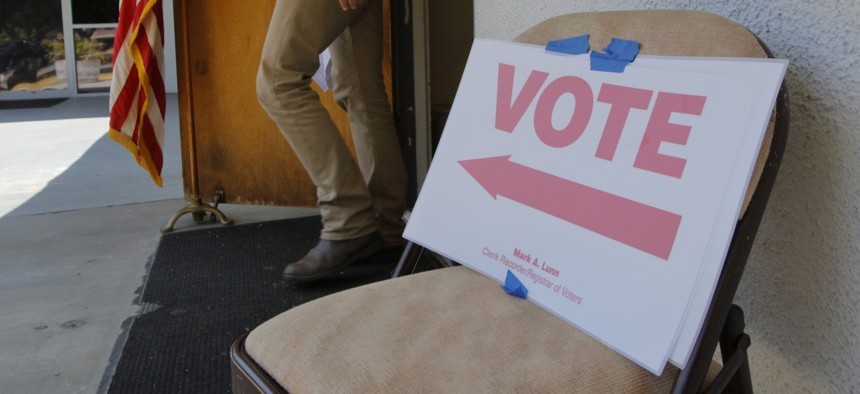Connecting state and local government leaders
Without impinging on the sovereignty of any state, county or town, the federal government does have the ability to help secure national elections, according to the clerk-recorder of Inyo County, California.
INDEPENDENCE, Calif. — Recently at the annual Defcon computer security conference in Las Vegas, hackers tested just how easy it would be to hack into surplus voting machines. They found that, with unfettered access to the voting machines, the winning team was able to hack into their machine within minutes.
To be clear, no one has found evidence that any votes were changed or that any voting machines were hacked in the actual 2016 election cycle. This is due, in large part, to the diligence of local election officials who defend against known vulnerabilities, using a combination of cybersecurity and physical security measures. However, the fact that there isn’t any evidence of vote tampering doesn’t mean that we can’t improve the security of America’s election systems, as many local elections officials have been advocating for years.
All patriotic Americans want to be sure that neither the 2018 congressional elections, nor the 2020 presidential election, nor any other future election could be compromised by even a single election victory due to improperly altered vote counts.
So why has the federal government taken so few concrete actions to safeguard our voting technology? One reason is that elections, like schools, are administered locally—by states, by counties and sometimes even by towns. The federal government has some leverage, but not much.
Federal action on elections often meets with resistance from the states. Last year the Department of Homeland Security designated election systems to be “critical infrastructure,” a designation that, on its face, seems to require nothing of the states while offering significant services. Yet the National Association of Secretaries of State made clear their displeasure by adopting a formal resolution opposing the designation. And just recently Georgia Secretary of State Brian Kemp reiterated the complaint: “A ‘critical infrastructure’ designation is simply a big government power grab.”
Without impinging on the sovereignty of any state, county or town, the federal government does have the ability to help secure our national elections. They could accomplish this by funding the development of a high-assurance, secure, open-source election system. This concrete, reasonably priced and highly effective step would help cash-strapped jurisdictions across the country replace their aging voting equipment with systems as secure as the technology the federal government procures for national security, the military and space exploration.
Federal action on elections also frequently meets resistance from citizens concerned about federal control of elections. However, a federally-commissioned, openly published election system design allows anyone—academics, security professionals or interested citizens—to scour the design for “back-doors.”
Typically, when Boards of Election bought technology in the past, they paid dearly not just for hardware and set-up, but also for the design itself. For example, according to the National Conference of State Legislatures, a single proprietary high-speed ballot scanner ranges from $70,000-$100,000. An entire proprietary elections system for an area like Inyo County, California with 10,000 voters can cost upwards of $600,000 under a traditional proprietary license.
The federal government could change the paradigm by publishing an election system design under an open source license which would allow any state, county or town to adopt the system for the price of hardware and set-up alone. This one-time investment would make secure, high-assurance election technology affordable for many jurisdictions. Not only would the capital costs be lower but, with open source technology, maintenance, support and upgrades could be competitively bid, bringing down the operating costs as well.
The cost to design such a system would be approximately $10 million, which represents about 0.25 percent of the annual Department of Homeland Security budget. A federal expenditure of ten million dollars could save hundreds of millions of taxpayer dollars nationwide. The effect would be similar to the Help America Vote Act of the early 2000s, but at a fraction (1/350) of the $3.5 billion cost to the federal government.
The American people deserve this investment to secure our elections. If the Department of Homeland Security won’t act, perhaps someone else will. Travis County, Texas, has already developed a detailed blueprint for an open source system and a consortium to support it. Smaller jurisdictions like Inyo County, California have also been actively seeking open source solutions for elections. All that’s missing is the money.
Kammi Foote is the clerk-recorder in Inyo County, California.

NEXT STORY: A Twist in the Narrative About the Nation’s Urban-Rural Economic Divide



